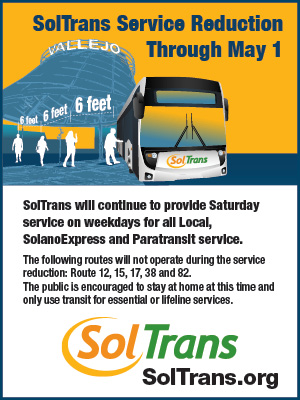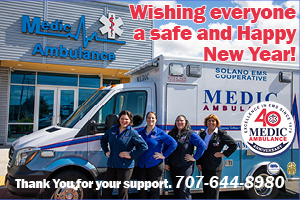
In 2018, Chaunté Crockett remembers how alone she felt as a soon-to-be single mom. When she was six months pregnant with her life about to dramatically change, a colleague recommended that she visit Solano Heals, a multipronged coalition supported by Solano Public Health with the mission to promote equity in healthy births for black babies and their families in Solano County.
After sharing her story with someone in the program, she met other soon-to-be mothers in a discussion group. The highway patrol dispatcher soon found that many were working moms like herself, running 12 hour shifts from morning to evening.
“Everybody came from a different perspective and had their own insight into my situation,” she said, “and there were others who had gone through it before me.”
The discussion group provided her a therapeutic space where she received useful information, such as helpful breastfeeding tips, and played games with the group based on what they had learned.
“Whenever you needed something, whether it was a good or a bad day, the staff was always available by phone or text,” Ms. Crockett remembers. “I had to reach out to them a lot, and after I had my baby, we would do home visits to follow up.”
After she had her son, she and the other mothers continued to meet on their own for walks on the Vallejo waterfront and birthday parties, even open mic nights. Her time in the program had helped her build a community, and her son has friends to grow up with straight from the womb.
“I saw her just sprout up and become a better mother and stronger woman, so the support and encouragement in this program is awesome,” her mother added. “I’ve never seen her happier than this.”
“We’re not a cookie cutter program, explained Angelique Anderson, a social worker at Solano HEALS. “Most people think (black infant health) outcomes have to do with socioeconomic status, but it’s not that at all. The toxic stress levels are very unique to being a black mother in America.
“Moms who’ve had masters level degrees in our program find it very beneficial,” she continued, “especially when we get them the information that they’re just as at risk in comparison with white mothers with no high school diploma.”
The people at Solano HEALS provide the education that new mothers need to make healthier lifestyle choices, in addition to addressing the broader social determinants of health that the organization is trying to change. Each aspect is designed to give every baby and family the resources, support, and environment they deserve at the start of life.
According to the CDC, approximately 700 women die each year in the United States as a result of pregnancy or delivery complications, with 47.2% of them being black/African American. Most of these complications develop during pregnancy, and most are preventable or treatable, stressed Ms. Anderson.
“In 2020 you wouldn’t think that’d still be an issue, but it’s still very much an issue,” she said.
Solano Heals helps women advocate for themselves with health care providers by partnering with Kaiser and La Clinica de la Raza to provide group prenatal care for African American women where they can discuss their health and well-being throughout pregnancy in a nurturing environment.
In addition, Touro University California (TUC) has partnered with Solano HEALS to provide Race Equity Training to health care providers in Solano County to help unpack how to approach matters like implicit bias, which have had a historic impact on the black community that is still felt today.
Another objective to address these inequities is an online toolkit for community members that aims to de-stigmatize mental health in the black community and provide local resources for mental health support and services. TUC was also able to help secure a grant for Solano HEALS to extend its reach online with the creation of a mental health toolkit. As part of the effort to normalize the conversation around mental health, the site will provide visitors a mental health screening as well as a platform for mothers to share their stories and hear from people in the same shoes, much like with Ms. Crockett and her mothers’ group.
“Women who experience untreated mental health issues such as depression and anxiety during pregnancy are at greater risk of having a preterm delivery or delivering a low birth weight baby” explained Dr. Carly Strouse, Assistant Professor of Public Health at TUC. “This can have negative impacts on the developing child with a risk of poor mother-infant attachment as well as long term emotional dysregulation for their child.”
Preventing these effects means addressing the cultural biases that prevent many African Americans from accessing care due to things like prior experience with misdiagnosis, inadequate treatment, or lack of cultural awareness.
“We’re trying to de-stigmatize support and mental health services,” she said. “The important thing is that (mothers are) being seen and followed so if anything happens, they’re already connected to a provider.”
If you are interested in joining the Solano HEALS coalition or their resources and training, visit solheals.wixsite.com/solanoheals.














































